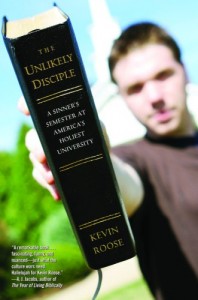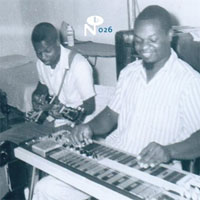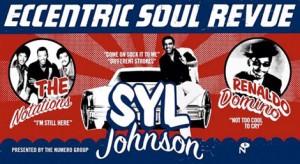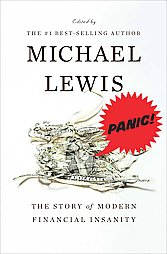Interview
XLR8R
April 2009
Link

“I consider any musician a cheerleader for community,” says 23-year-old Randolph Chabot, conducting a phone interview in between bites of a chicken sandwich at a diner in Lansing, Michigan. “Music inspires people to live life to the fullest. A perfect example was a recent show in Milwaukee—I quieted everyone and said, ‘You’re not going to need anyone else other than the people in this room.’”
It may sound precious coming from anyone, but when it’s Chabot speaking, someone who wears a shirt that says “Sing With All Your Might” un-ironically, it appears doubly so. Or, at least it does until you see him passionately perform with his band—friends he’s known since childhood—as 8-bit noise and electronic melodies engulf his very earnest lyrics. He’s blessed with an ability to energize, engage, and get people on his side. (He once hit Ghostly International’s label manager with a stage prop and they still signed him.)
His new full-length, Moondagger, is immediate, full of electro-pop music caught in a playful tug of war between gratifying, squirmy rhythms and lush neon melodies. “Greens, Grays and Nordics,” a stop-start rush of clipped guitar, warm keys, and kinetic samples boils over with Chabot’s cascading, strident vocals. On the title track, Chabot’s pure, bright tone is at the eye of a storm of synths and guitars. It’s the latest in a string of albums and singles that Chabot has been pumping out for over a decade. Named after a G.I. Joe villain and inspired by Dan Deacon and the Baltimore scene’s DIY ethos, Deastro has a similar passion for firing up the crowd. “If I feel my intestines about to come out after a show, I know I did well,” he boasts.
It’s all the more intriguing since, until his late teens, Chabot’s musical exposure was mostly classical and Christian, along with a fair dose of electronic music. Raised in a Pentecostal family with a youth pastor for a father, he listened to a lot of Christian punk groups, Pedro the Lion, Joy Electric, and Danielson (the alternative music section of any Christian bookstore, basically). At one point he went to school to become a youth pastor, and it was during his time at North Central Bible College that a friend inspired him to get into music.
“He was saying, ‘Isn’t it crazy, you and me could try and get homeless people off the street all our lives, and maybe help like 20 people. It would be the best things we could do with our lives. But think about all the people in all the cities you’ve ever been to that aren’t being helped,’” Chabot recounts. “It inspired me to get back into music. Even at the smallest show you’ll ever play, you meet more people than you could just about any other way. It reminds me of church in a lot of ways. I don’t go to church anymore, but I love going to shows. It feels like a unique chance to gather.”
Chabot seems to be generally positive about everything, including the Motor City music scene, which he says is really starting to come into its own and could be some Motown-like model of collective music making. “It’s not there yet, but you can feel everybody wants to work together,” he says. “It’s a matter of time before everything comes into place.” It’s hard not to be drawn to that kind of confidence.







